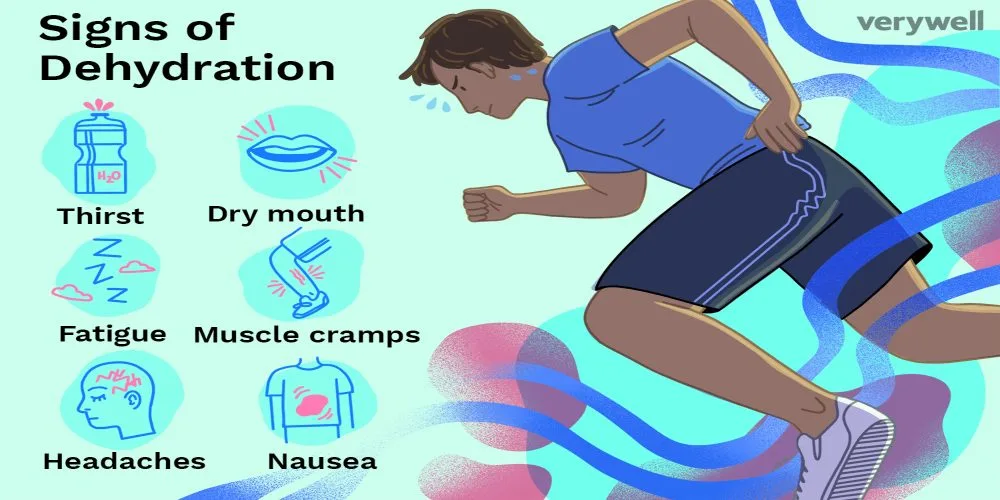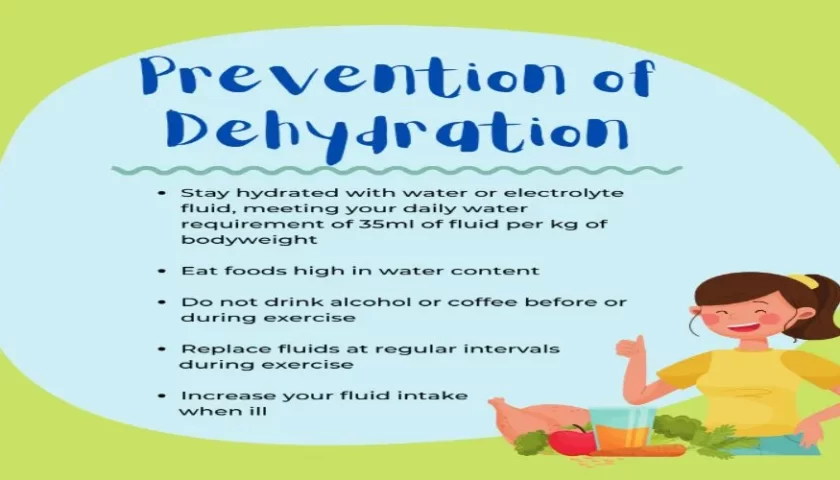Health
Understanding The Dangers Of Dehydration During Exercise

Staying hydrated is crucial for overall health, and this becomes even more important during exercise. Dehydration occurs when the body loses more fluids than it takes in, leading to an imbalance that can have serious consequences. In this article, we will explore the dangers of dehydration during exercise, why it happens, and how to prevent it to ensure a safe and effective workout.
Table of Contents
The Importance Of Hydration

1. Understanding Dehydration:
Dehydration happens when the body doesn’t have enough water to carry out its normal functions. During exercise, the body loses water through sweat, and if not adequately replenished, it can lead to dehydration. This can negatively impact physical performance, cognitive function, and overall well-being.
2. The Role of Reverse Osmosis:
Reverse osmosis is a water purification process that removes impurities through a semipermeable membrane. While reverse osmosis can be beneficial in producing clean drinking water, it’s important to note that it removes both harmful substances and essential minerals. Therefore, during exercise, it’s essential to focus on replenishing lost fluids and electrolytes, rather than solely relying on reverse osmosis water.
Understanding The Dangers
1. Impaired Physical Performance:
Dehydration can significantly impair physical performance. As the body loses water, it becomes more difficult for the heart to pump blood efficiently, leading to decreased oxygen and nutrient delivery to the muscles. This can result in reduced strength, endurance, and coordination, affecting overall athletic performance.
2. Increased Risk of Heat Illness:
When dehydrated, the body struggles to regulate its internal temperature. This increases the risk of heat-related illnesses, such as heat cramps, heat exhaustion, and even heatstroke. These conditions can be life-threatening and require immediate medical attention.
Preventing Dehydration

1. Hydrate Before, During, And After Exercise:
Prioritize hydration by drinking water before, during, and after your exercise session. Aim to drink at least 8 to 16 ounces (240 to 480 milliliters) of water 1 to 2 hours before exercise and continue sipping water during the workout. Afterward, replenish lost fluids by drinking water or electrolyte-rich beverages.
2. Monitor Fluid Intake:
Pay attention to your fluid intake and monitor your hydration levels. One way to gauge your hydration is by checking the color of your urine. Ideally, it should be pale yellow or clear. Dark yellow urine indicates dehydration and a need for increased fluid intake.
3. Electrolyte Replacement:
During intense or prolonged exercise, electrolytes such as sodium, potassium, and magnesium are lost through sweat. Replenishing these electrolytes is crucial to maintain proper hydration and support muscle function. Consider sports drinks or electrolyte-enhanced beverages to restore the balance of essential minerals.
4. Be Mindful Of Environmental Factors:
Take into account the environmental conditions when planning your workout. Hot and humid weather increases fluid loss through sweat, making hydration even more critical. Dress appropriately, seek shade when possible, and adjust your exercise intensity accordingly.
5. Listen To Your Body:
Pay attention to signs of thirst and listen to your body’s cues. Feeling thirsty is an indication that you are already partially dehydrated, so it’s important to drink water before you feel thirsty. Additionally, watch out for symptoms such as dizziness, fatigue, dry mouth, and decreased urine output, as these may be signs of dehydration.
Staying properly hydrated is essential for optimal exercise performance and overall health. Dehydration during exercise can lead to impaired physical performance, increased risk of heat-related illnesses, and overall discomfort. By prioritizing hydration before, during, and after exercise, monitoring fluid intake, replenishing electrolytes, being mindful of environmental factors and listening to your body’s signals, you can prevent dehydration and ensure a safe and effective workout. Remember, staying hydrated is key to maintaining your well-being and getting the most out of your physical activities.
To know more about keep reading Lemony Blog.

-

 Business3 years ago
Business3 years agoHow to Do Long-Distance Moves with Children
-

 Travel2 years ago
Travel2 years agoQuick Guide: Moving To Santa Rosa?
-

 Real Estate3 years ago
Real Estate3 years agoWhy Dubai Festival City is a Great Neighbourhood for Young Learners
-

 Business3 years ago
Business3 years agoIs Guest Posting a Good Inbound Marketing Strategy?
-

 Business1 year ago
Business1 year agoThe Ultimate Guide To Thriving In Your Printing Franchise
-

 Business1 year ago
Business1 year agoExploring The Benefits And Challenges Of Restaurant Franchising
-

 Tech3 years ago
Tech3 years agoCyber Table That Will Change Your Life
-

 Lifestyle1 year ago
Lifestyle1 year agoDallas’ Hidden Gems: 6 Must-Try Restaurants Off The Beaten Path!









Recent Comments